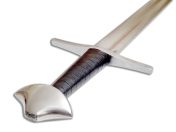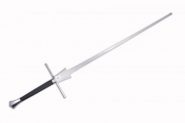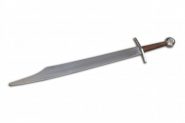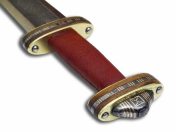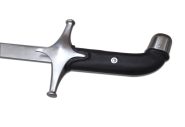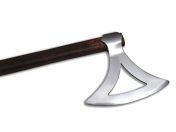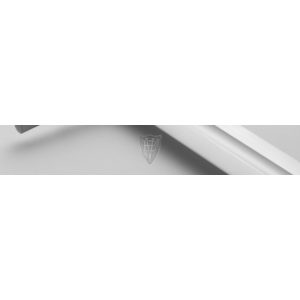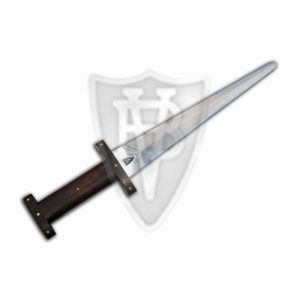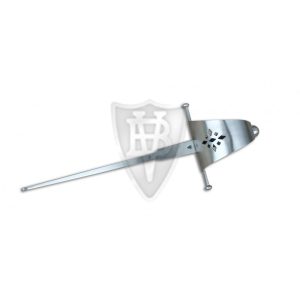Sharpening of a dagger before or after the assembling.
Note: the delivery costs -because of the special delivery- can be higher as usual!
Daggers
My dagger blades are made out entirely of 51CRV4 tempered steel.
Blades width is 1,5 mm.
Upon request the edges may be sharpened or finished for historical combat (blade width: 2,5 mm)
XIV. Century type is present in various forms in Europe.
Grip: beech


This dagger was developed specifically for HEMA fencing, seeing the growing demand for this fencing tool.
The material of the blade is the well-proven 51CrV4 steel, which is characterized by good edge retention and flexibility.
The dagger allows for very easy fencing, the weapon seems almost weightless due to the close center of gravity.
Its handguard is made of a 2 mm thick sheet, it provides complete protection for the hand.
Take a look at our other hema rapiers for sale




This type of dagger was in use in XV. Century throughout Europe.
Blade is tempered, made of 1 pc of steel, for re-enactment battles.


It's a replica of the dagger shapes from that ages. It was in use throughout Europe.
Edge thickness: 2 mm



This type of dagger was in use in XV. Century throughout Europe.

The shape of the dagger comes from the XIVth Century.
The blade was made of 1 piece of steel, with blunt edges, tempered for real re-enactment battles.



XV. century dagger with a single-edged blade.
The handle is hardwood, pickled.
The blade is hardened carbon steel, suitable for martial arts.
Due to the characteristic round shape of the hand guards, this type is called a rondel dagger.


Daggers played an important role throughout history in combat confrontations, as secondary or self defense weapons. In antiquity swords often were considered as daggers due to their shortened size and capability of thrusting or stabbing, ex: the pugio in the Roman Empire. Daggers in the Early Middle Ages were single cutting edge knives, ex: scramax evolving for larger civilian use. They appeared in various shapes and sizes but featuring only a single cutting edge.
Double-edged thrusting daggers that looked like swords in terms of shape emerged in the XIII. century. The historical types of daggers in the XIV – XV century are the baselard, rondel, kidney dagger. These daggers were called „mercy weapons” as they were used to give the last mercy strike to the opponent. In the XVI century, in the period of larger daggers appeared the parrying daggers in order to assist in parrying incoming thrusts and protect the opponent’s weapon.
Daggers have been used as combat weapons up to the present time.

